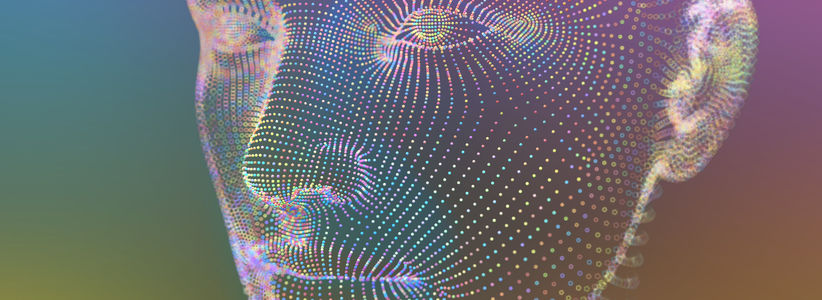Mental Health Network proud to support innovative digital therapy for people hearing voices

The NHS Research Scotland (NRS) Mental Health Network provided key support to a trial which found that using computer-generated avatars is effective in helping some people with psychosis
Led by King’s College London, the pioneering AVATAR1 study first found in 2018 that the novel therapy reduced the distress and frequency with which people hear voices — commonly associated with a diagnosis of schizophrenia — when compared to supportive counselling.
The AVATAR2 study, funded by Wellcome, has since compared two forms of the groundbreaking therapy which emerged from AVATAR1 findings.
The NRS Mental Health Network team in Glasgow supported the AVATAR2 multi-site trial with recruitment, study assessments, and follow-ups, as well as therapy sessions held at the Queen Elizabeth University Hospital’s Clinical Research Facility, ensuring successful trial delivery in both NHS Scotland and beyond.
The Network’s Peer Researcher, Suzy Syrett, also helped to set up a patient and public involvement (PPI) group — leading to further research insights on the value of PPI — and shaped promotional and educational materials.
The University of Glasgow’s Psychosis Research Group, led by Professor Andrew Gumley — part of the Network’s West Node — has been at the forefront of developing new therapies for people with experiences such as distressing voices, also referred to as auditory hallucinations.
He said: “The AVATAR2 trial results provide an important and compelling example of how psychological therapies can make an important and meaningful difference to the care of people who hear distressing voices.”
AVATAR therapy is composed of a series of guided therapy sessions during which voice hearers are able to have a conversation with an animated digital representation of their distressing voice.
The research, published in Nature Medicine last month and co-authored by Professor Gumley, has been recommended by a National Institute for Health and Care Excellence (NICE) Early Value Assessment (EVA) and Glasgow has been at the forefront of leading early implementation work.
With the response to pharmacological and psychological treatments considered to lead to lower quality outcomes, the researchers are now seeking to provide the new digital intervention in routine NHS settings to gather further real-world evidence of its effectiveness over the next three years.
Prior to commencement of the innovative approach, participants work with a therapist to create a computerised visual representation, or avatar, of the voice that they hear.
Therapy sessions then involve a three-way conversation between the voice hearer, therapist and avatar, with the therapist speaking as themselves as well as voicing the avatar with the help of voice conversion software. Participants gradually learn to stand up to the voice and take control.
From January 2021 to November 2022, a total of 345 participants were recruited from eight clinical settings in four centres linked to the Universities of Glasgow, Manchester, UCL and King’s. They were randomly assigned to receive either AVATAR Brief composed of six therapy sessions; AVATAR Extended composed of 12 more personalised sessions; or continue with their usual support.
The researchers conducted follow-up interviews at the end of 16 weeks, and three months after therapy concluded at the end of 28 weeks to assess the effectiveness of the intervention across several measures, investigating the long-term impact on the related distress, severity, and frequency of voices, as well as participant mood and wellbeing.
Researchers found that, at the 16-week follow-up stage, participants in both the Brief and Extended versions of the therapy showed statistically significant improvements in voice-related distress, voice severity, empowerment, mood, and wellbeing compared to those who did not receive the therapy. Participants who received AVATAR Extended also saw a reduction in the frequency of distressing voices.
AVATAR Therapy’s effects on voice-hearing distress did not differ significantly at the 28-week mark, compared to those receiving their usual support. However, the study did find that AVATAR Extended was an effective means of reducing the frequency of distressing voices and increasing participants’ empowerment and wellbeing over the longer-term compared to treatment.
Professor Hamish McLeod, University of Glasgow, said: “Showing that psychological therapies can change symptom levels as well as reduce distress in a relatively brief number of sessions is hugely encouraging. Many people experiencing psychosis want psychological therapy as part of their care and the results of the AVATAR trial opens up new treatment avenues.”
In March 2024, the National Institute for Health and Care Excellence (NICE) conducted an Early Value Assessment (EVA) for medical technology. It has since recommended the therapy be used in the NHS while researchers continue evaluation.
Dr Moya Clancy, AVATAR2 trial coordinator in Glasgow, said: “We are proud to say this work has spearheaded early implementation in NHS. We now hope to host a dissemination event in 2025, while collaborating again with colleagues at King’s College London.
“I would like to stress that the support from NRS Mental Health Network really was crucial to the success of the AVATAR2 trial, both locally in NHS Greater Glasgow & Clyde and NHS Lanarkshire sites, as well as across the UK.”
This research was supported by the King’s Clinical Trials Unit, the National Institute of Health and Care Research (NIHR) Maudsley Biomedical Research Centre (BRC), and NIHR Manchester BRC.
Publication date: 11th December 2024

